Lisheng Fan
FedeCouple: Fine-Grained Balancing of Global-Generalization and Local-Adaptability in Federated Learning
Nov 12, 2025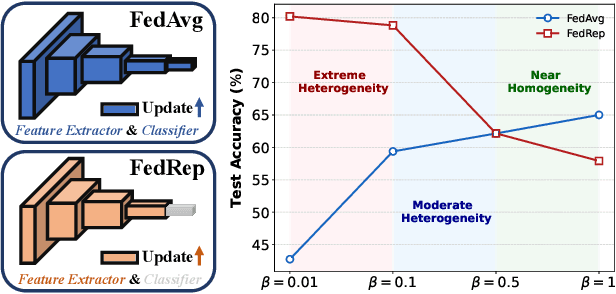
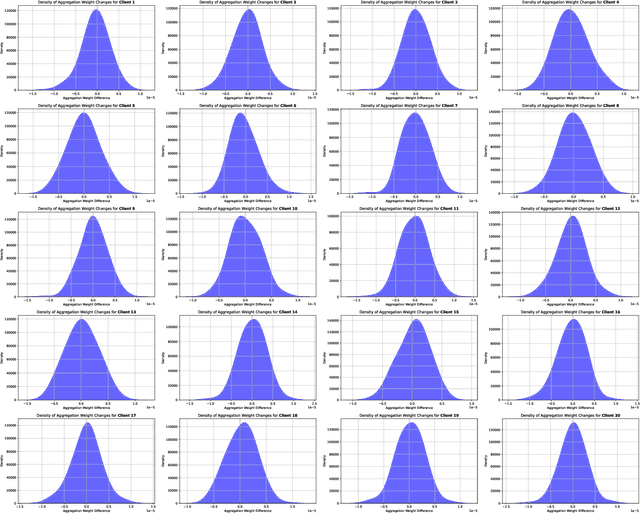
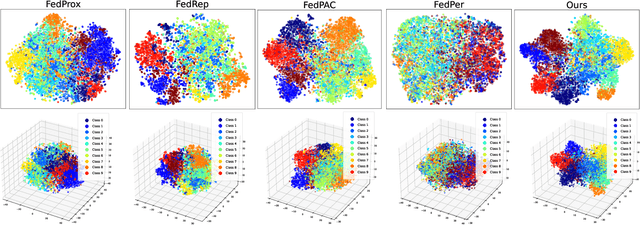
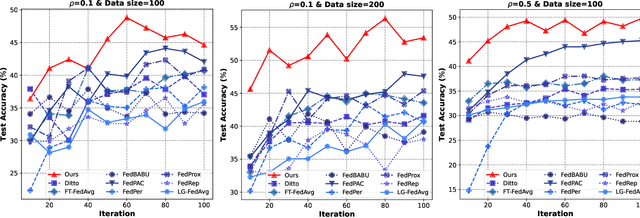
Abstract:In privacy-preserving mobile network transmission scenarios with heterogeneous client data, personalized federated learning methods that decouple feature extractors and classifiers have demonstrated notable advantages in enhancing learning capability. However, many existing approaches primarily focus on feature space consistency and classification personalization during local training, often neglecting the local adaptability of the extractor and the global generalization of the classifier. This oversight results in insufficient coordination and weak coupling between the components, ultimately degrading the overall model performance. To address this challenge, we propose FedeCouple, a federated learning method that balances global generalization and local adaptability at a fine-grained level. Our approach jointly learns global and local feature representations while employing dynamic knowledge distillation to enhance the generalization of personalized classifiers. We further introduce anchors to refine the feature space; their strict locality and non-transmission inherently preserve privacy and reduce communication overhead. Furthermore, we provide a theoretical analysis proving that FedeCouple converges for nonconvex objectives, with iterates approaching a stationary point as the number of communication rounds increases. Extensive experiments conducted on five image-classification datasets demonstrate that FedeCouple consistently outperforms nine baseline methods in effectiveness, stability, scalability, and security. Notably, in experiments evaluating effectiveness, FedeCouple surpasses the best baseline by a significant margin of 4.3%.
Asynchronous Risk-Aware Multi-Agent Packet Routing for Ultra-Dense LEO Satellite Networks
Oct 31, 2025Abstract:The rise of ultra-dense LEO constellations creates a complex and asynchronous network environment, driven by their massive scale, dynamic topologies, and significant delays. This unique complexity demands an adaptive packet routing algorithm that is asynchronous, risk-aware, and capable of balancing diverse and often conflicting QoS objectives in a decentralized manner. However, existing methods fail to address this need, as they typically rely on impractical synchronous decision-making and/or risk-oblivious approaches. To tackle this gap, we introduce PRIMAL, an event-driven multi-agent routing framework designed specifically to allow each satellite to act independently on its own event-driven timeline, while managing the risk of worst-case performance degradation via a principled primal-dual approach. This is achieved by enabling agents to learn the full cost distribution of the targeted QoS objectives and constrain tail-end risks. Extensive simulations on a LEO constellation with 1584 satellites validate its superiority in effectively optimizing latency and balancing load. Compared to a recent risk-oblivious baseline, it reduces queuing delay by over 70%, and achieves a nearly 12 ms end-to-end delay reduction in loaded scenarios. This is accomplished by resolving the core conflict between naive shortest-path finding and congestion avoidance, highlighting such autonomous risk-awareness as a key to robust routing.
SCA-LLM: Spectral-Attentive Channel Prediction with Large Language Models in MIMO-OFDM
Sep 09, 2025Abstract:In recent years, the success of large language models (LLMs) has inspired growing interest in exploring their potential applications in wireless communications, especially for channel prediction tasks. However, directly applying LLMs to channel prediction faces a domain mismatch issue stemming from their text-based pre-training. To mitigate this, the ``adapter + LLM" paradigm has emerged, where an adapter is designed to bridge the domain gap between the channel state information (CSI) data and LLMs. While showing initial success, existing adapters may not fully exploit the potential of this paradigm. To address this limitation, this work provides a key insight that learning representations from the spectral components of CSI features can more effectively help bridge the domain gap. Accordingly, we propose a spectral-attentive framework, named SCA-LLM, for channel prediction in multiple-input multiple-output orthogonal frequency division multiplexing (MIMO-OFDM) systems. Specifically, its novel adapter can capture finer spectral details and better adapt the LLM for channel prediction than previous methods. Extensive simulations show that SCA-LLM achieves state-of-the-art prediction performance and strong generalization, yielding up to $-2.4~\text{dB}$ normalized mean squared error (NMSE) advantage over the previous LLM based method. Ablation studies further confirm the superiority of SCA-LLM in mitigating domain mismatch.
Learning to Optimize Resource Assignment for Task Offloading in Mobile Edge Computing
Mar 15, 2022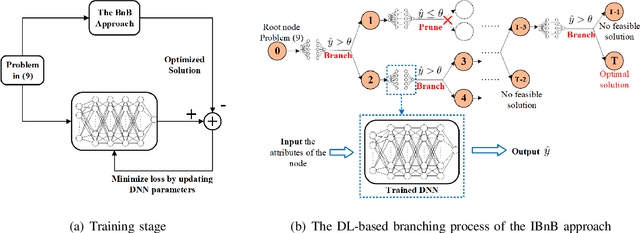
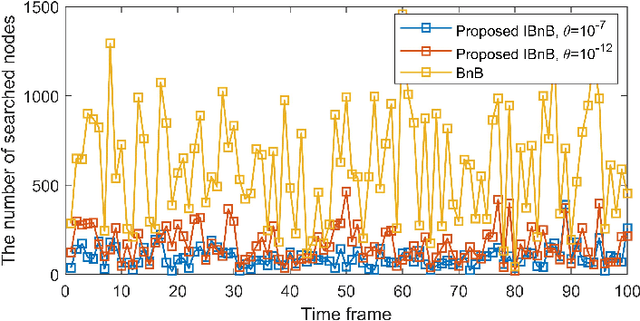
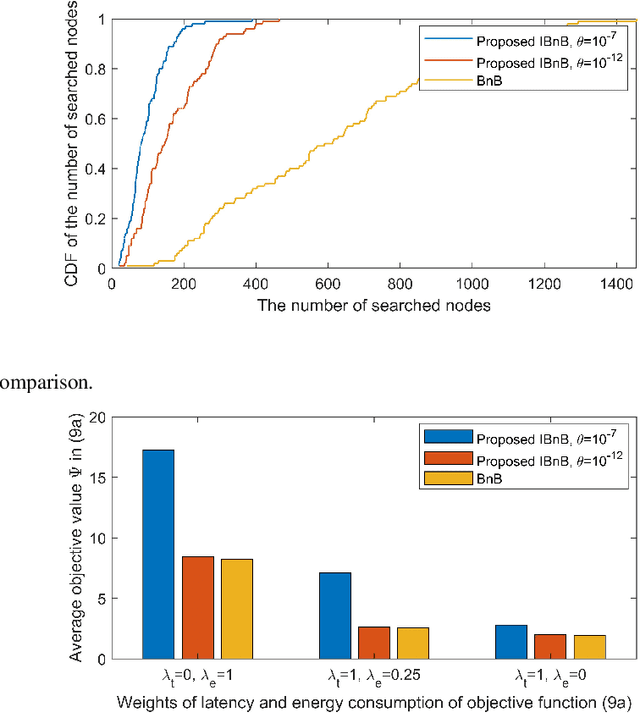
Abstract:In this paper, we consider a multiuser mobile edge computing (MEC) system, where a mixed-integer offloading strategy is used to assist the resource assignment for task offloading. Although the conventional branch and bound (BnB) approach can be applied to solve this problem, a huge burden of computational complexity arises which limits the application of BnB. To address this issue, we propose an intelligent BnB (IBnB) approach which applies deep learning (DL) to learn the pruning strategy of the BnB approach. By using this learning scheme, the structure of the BnB approach ensures near-optimal performance and meanwhile DL-based pruning strategy significantly reduces the complexity. Numerical results verify that the proposed IBnB approach achieves optimal performance with complexity reduced by over 80%.
Computational Intelligence and Deep Learning for Next-Generation Edge-Enabled Industrial IoT
Oct 28, 2021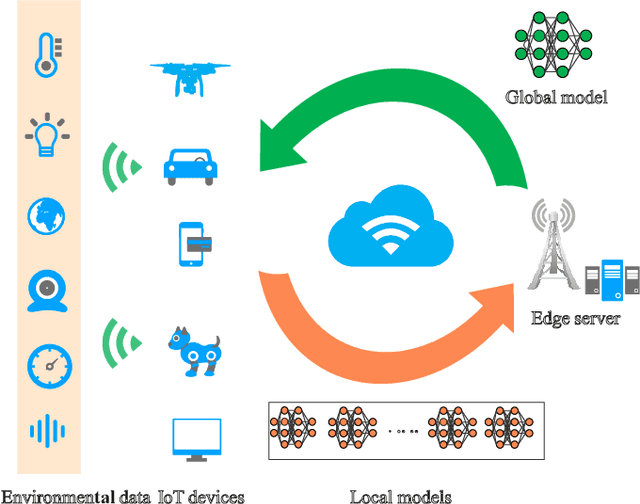
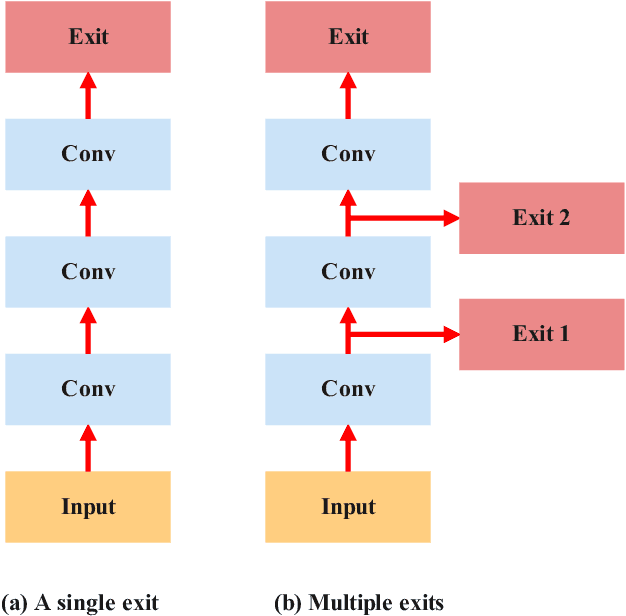
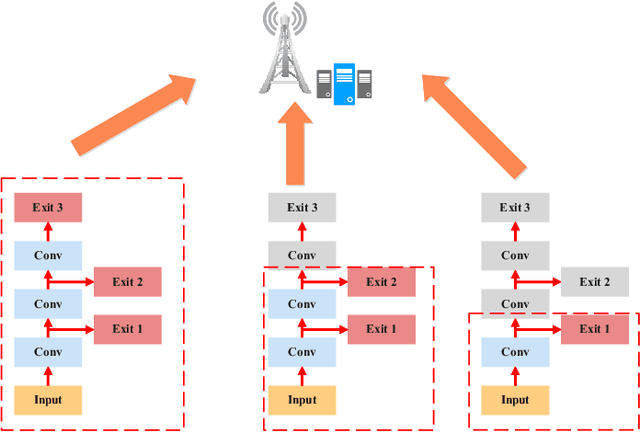
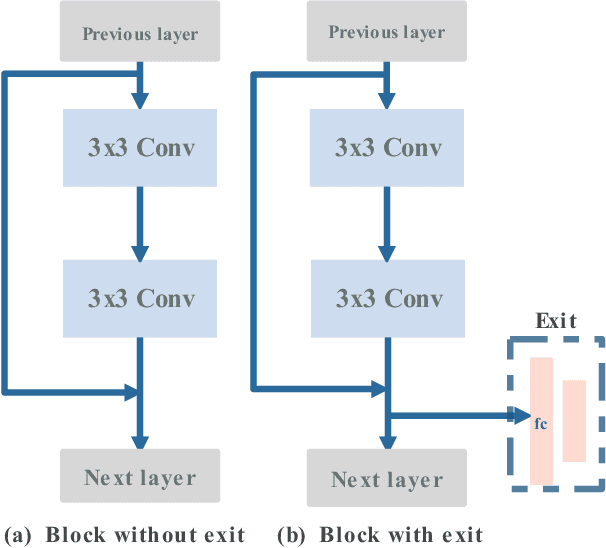
Abstract:In this paper, we investigate how to deploy computational intelligence and deep learning (DL) in edge-enabled industrial IoT networks. In this system, the IoT devices can collaboratively train a shared model without compromising data privacy. However, due to limited resources in the industrial IoT networks, including computational power, bandwidth, and channel state, it is challenging for many devices to accomplish local training and upload weights to the edge server in time. To address this issue, we propose a novel multi-exit-based federated edge learning (ME-FEEL) framework, where the deep model can be divided into several sub-models with different depths and output prediction from the exit in the corresponding sub-model. In this way, the devices with insufficient computational power can choose the earlier exits and avoid training the complete model, which can help reduce computational latency and enable devices to participate into aggregation as much as possible within a latency threshold. Moreover, we propose a greedy approach-based exit selection and bandwidth allocation algorithm to maximize the total number of exits in each communication round. Simulation experiments are conducted on the classical Fashion-MNIST dataset under a non-independent and identically distributed (non-IID) setting, and it shows that the proposed strategy outperforms the conventional FL. In particular, the proposed ME-FEEL can achieve an accuracy gain up to 32.7% in the industrial IoT networks with the severely limited resources.
Dilated Convolution based CSI Feedback Compression for Massive MIMO Systems
Jun 08, 2021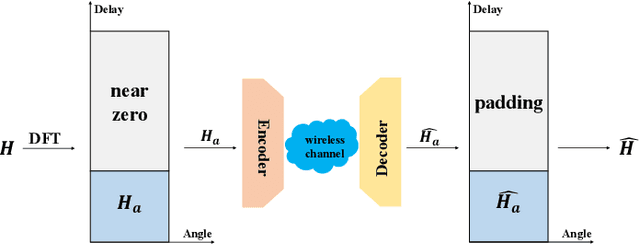
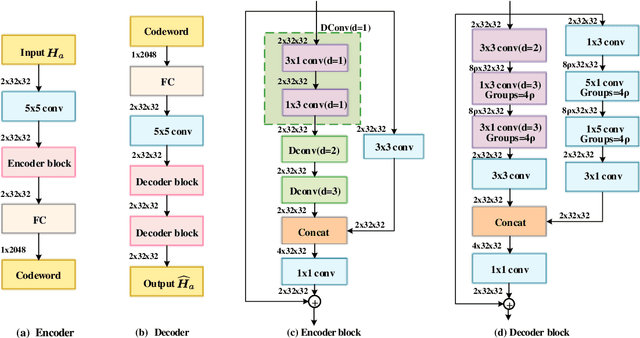
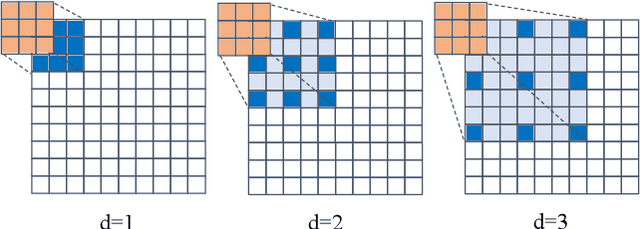
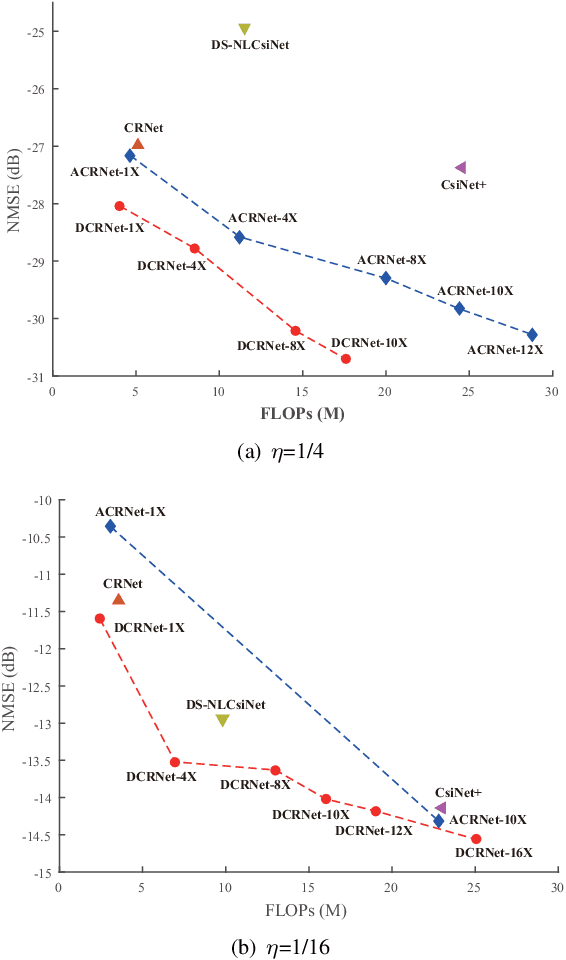
Abstract:Although the frequency-division duplex (FDD) massive multiple-input multiple-output (MIMO) system can offer high spectral and energy efficiency, it requires to feedback the downlink channel state information (CSI) from users to the base station (BS), in order to fulfill the precoding design at the BS. However, the large dimension of CSI matrices in the massive MIMO system makes the CSI feedback very challenging, and it is urgent to compress the feedback CSI. To this end, this paper proposes a novel dilated convolution based CSI feedback network, namely DCRNet. Specifically, the dilated convolutions are used to enhance the receptive field (RF) of the proposed DCRNet without increasing the convolution size. Moreover, advanced encoder and decoder blocks are designed to improve the reconstruction performance and reduce computational complexity as well. Numerical results are presented to show the superiority of the proposed DCRNet over the conventional networks. In particular, the proposed DCRNet can achieve almost the state-of-the-arts (SOTA) performance with much lower floating point operations (FLOPs). The open source code and checkpoint of this work are available at https://github.com/recusant7/DCRNet.
Learning based signal detection for MIMO systems with unknown noise statistics
Jan 21, 2021
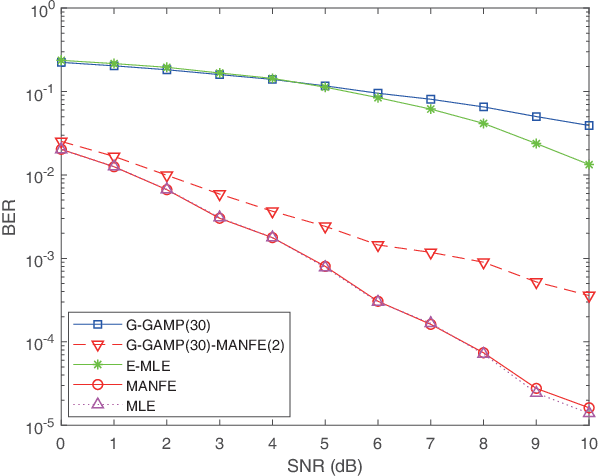
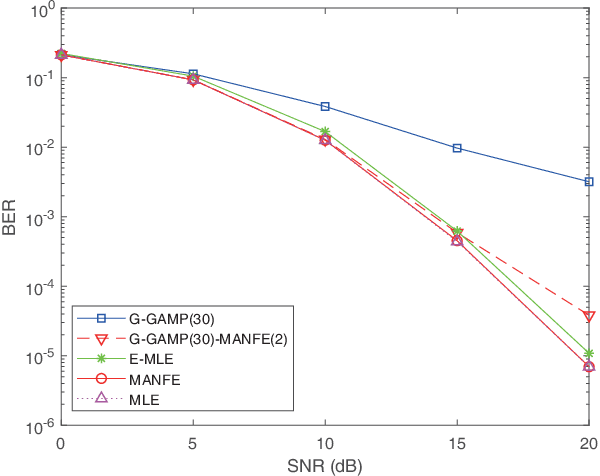
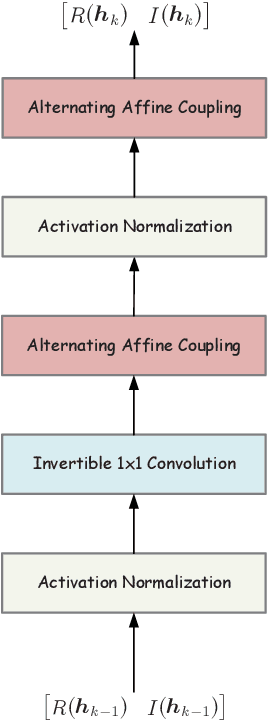
Abstract:This paper aims to devise a generalized maximum likelihood (ML) estimator to robustly detect signals with unknown noise statistics in multiple-input multiple-output (MIMO) systems. In practice, there is little or even no statistical knowledge on the system noise, which in many cases is non-Gaussian, impulsive and not analyzable. Existing detection methods have mainly focused on specific noise models, which are not robust enough with unknown noise statistics. To tackle this issue, we propose a novel ML detection framework to effectively recover the desired signal. Our framework is a fully probabilistic one that can efficiently approximate the unknown noise distribution through a normalizing flow. Importantly, this framework is driven by an unsupervised learning approach, where only the noise samples are required. To reduce the computational complexity, we further present a low-complexity version of the framework, by utilizing an initial estimation to reduce the search space. Simulation results show that our framework outperforms other existing algorithms in terms of bit error rate (BER) in non-analytical noise environments, while it can reach the ML performance bound in analytical noise environments. The code of this paper is available at https://github.com/skypitcher/manfe.
Towards Optimally Efficient Tree Search with Deep Temporal Difference Learning
Jan 21, 2021
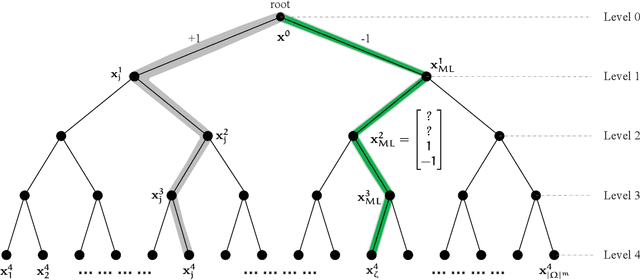
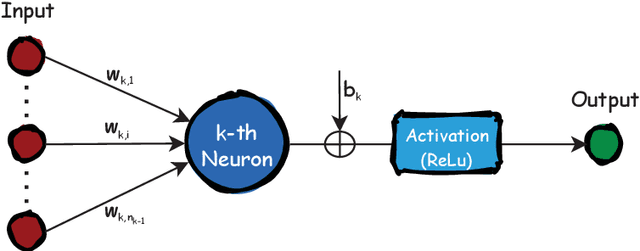
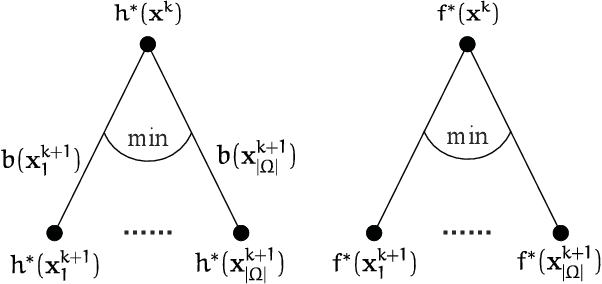
Abstract:This paper investigates the classical integer least-squares problem which estimates integer signals from linear models. The problem is NP-hard and often arises in diverse applications such as signal processing, bioinformatics, communications and machine learning, to name a few. Since the existing optimal search strategies involve prohibitive complexities, they are hard to be adopted in large-scale problems. To address this issue, we propose a general hyper-accelerated tree search (HATS) algorithm by employing a deep neural network to estimate the optimal heuristic for the underlying simplified memory-bounded A* algorithm, and the proposed algorithm can be easily generalized with other heuristic search algorithms. Inspired by the temporal difference learning, we further propose a training strategy which enables the network to approach the optimal heuristic precisely and consistently, thus the proposed algorithm can reach nearly the optimal efficiency when the estimation error is small enough. Experiments show that the proposed algorithm can reach almost the optimal maximum likelihood estimate performance in large-scale problems, with a very low complexity in both time and space. The code of this paper is avaliable at https://github.com/skypitcher/hats.
 Add to Chrome
Add to Chrome Add to Firefox
Add to Firefox Add to Edge
Add to Edge